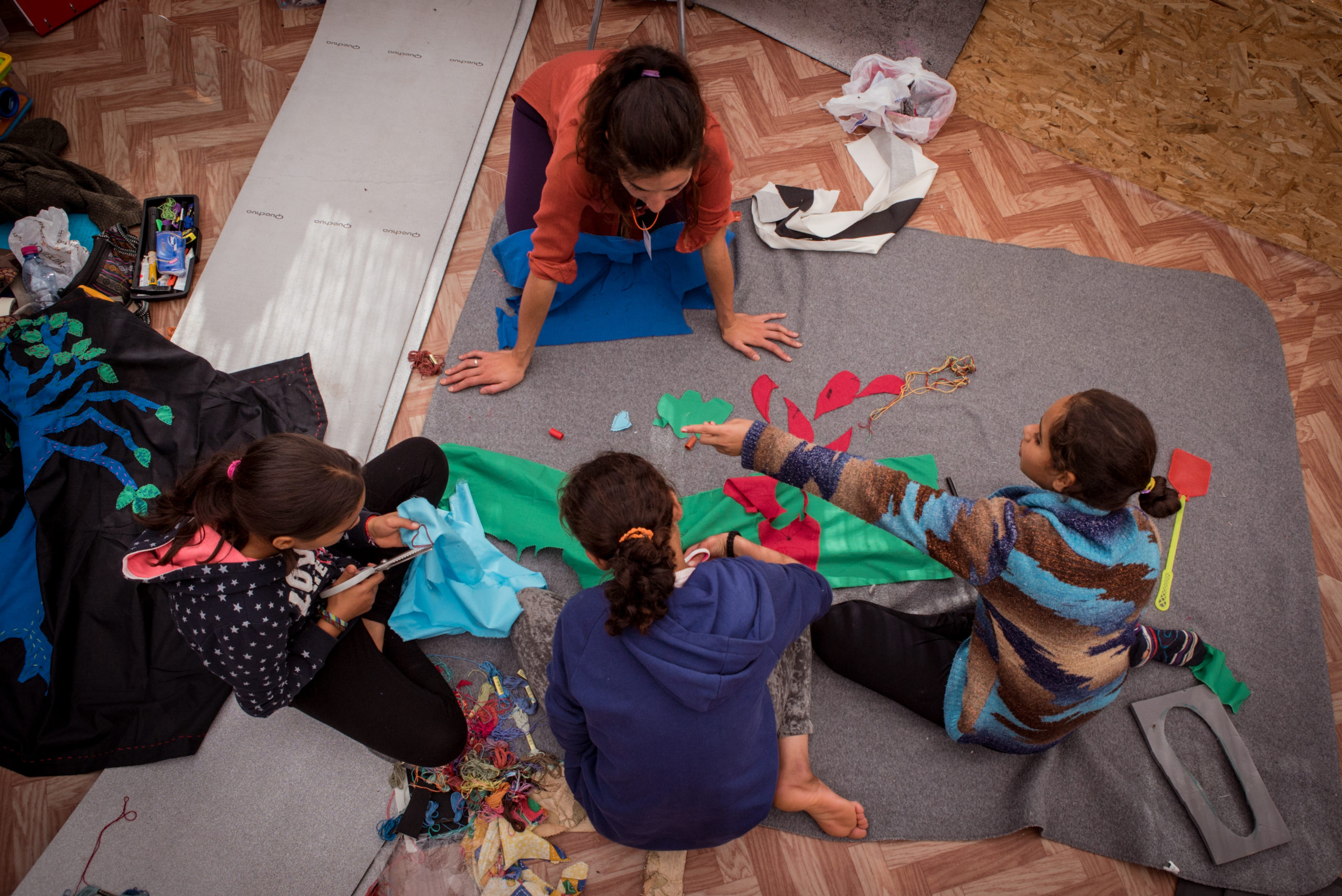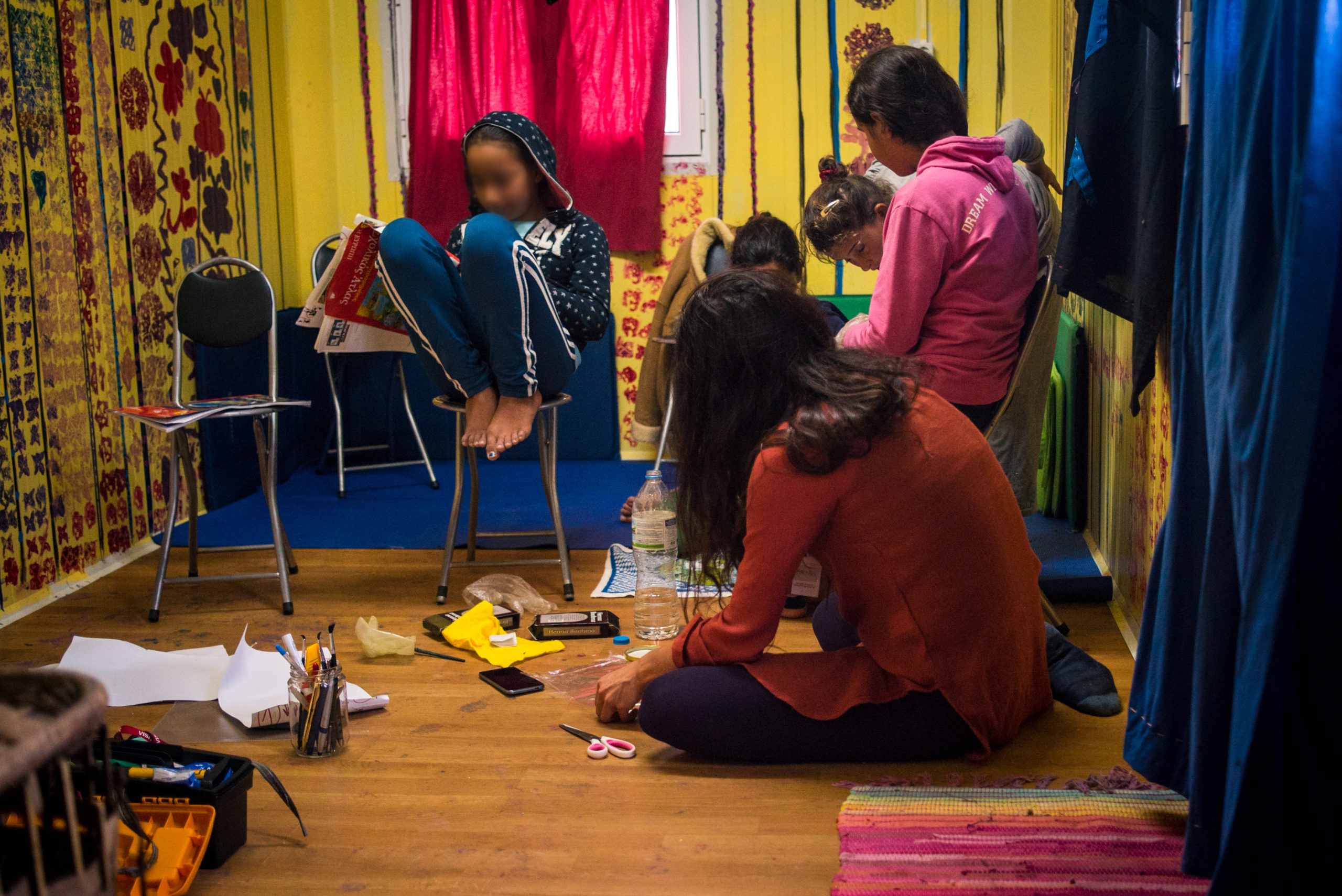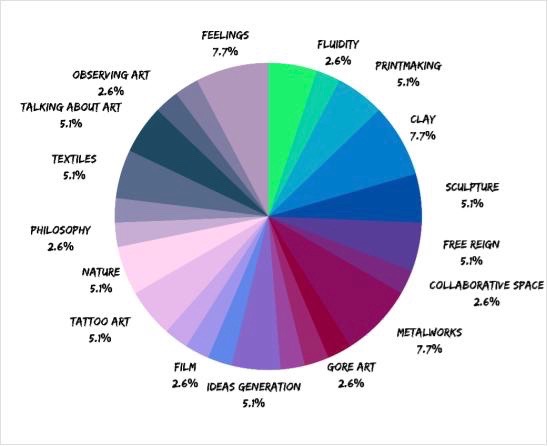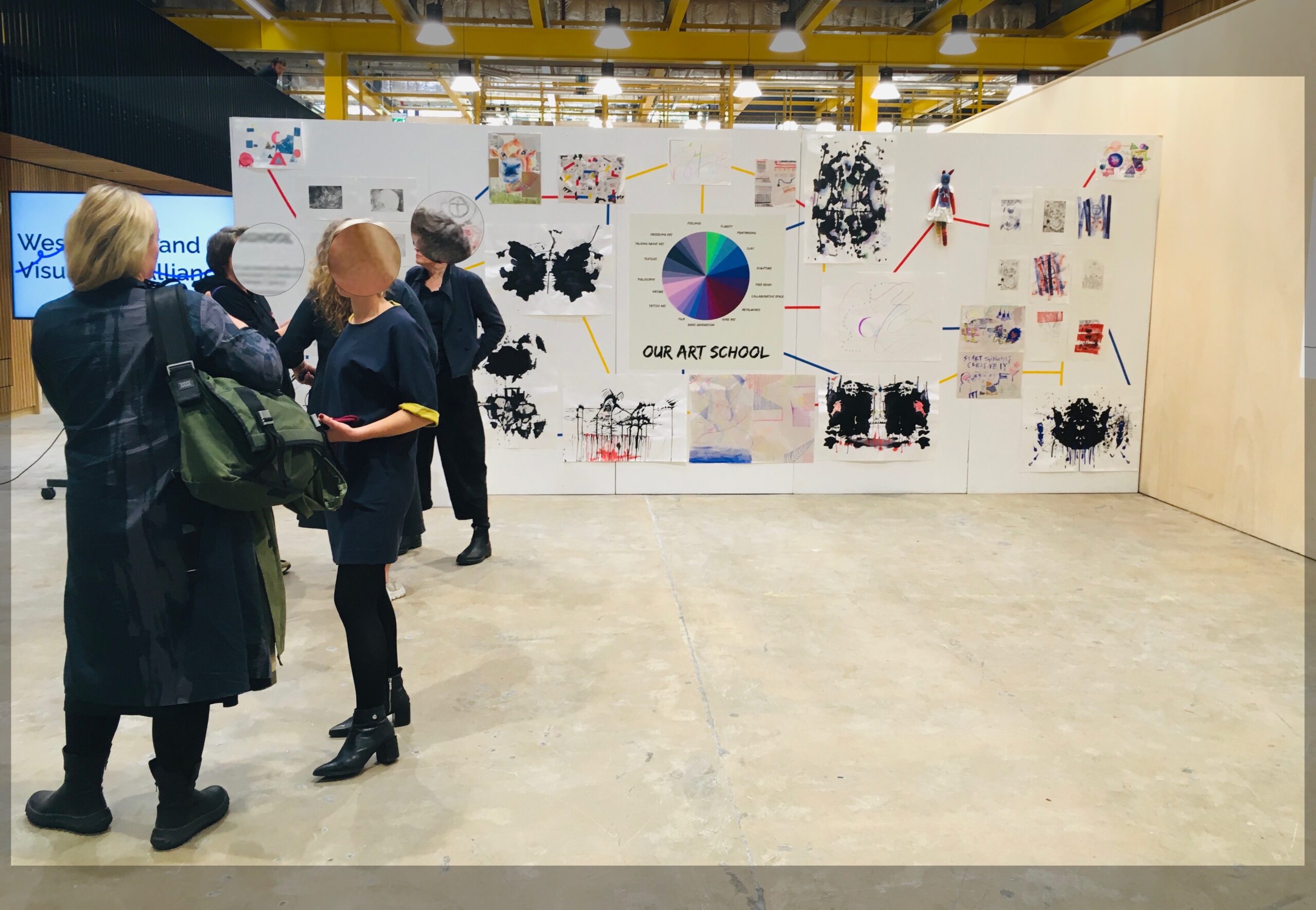Exploring art schools in the past and present
Over the course of a week young people were invited to engage with creative practices offered by art schools in the past and present.
They young people worked with technicians in the metal, ceramic and printmaking workshops to test materials, tools and think about form and function as a core part of the Bauhaus Vorkurs learning.
I devised a number of games that were inspired by aspects of the Bauhaus approach and gave scope for experimentation (including making chance sculptures and spin the colour wheel drawings).
Inspired by the interdisciplinary and experimental qualities of the Black Mountain College, we created maps and automatic drawing responses that explored subjective and collective processes. The studios evolved each day as we thought through what spaces, resources were required.
These material and conceptual experiments evolved into the young people developing their own artistic responses.
Imagining art school in the future
By reflecting on the successes of various workshops, processes, ideas and frameworks, we created our own curriculum.
We shared this curriculum with a group of local teachers, who were interested to explore the different categories. They were given the provocation to consider how we can re-frame progressive, creative pedagogy in a more networked and collaborative way by utilising the university spaces, resources and professional support.
The findings of our temporary art school (the curriculum and the material and conceptual responses from the young people involved) were exhibited as part of a public open evening that asked local communities how the university could become an important community asset.
These conversations are the first step towards addressing the real-world complexities of how universities impact communities. This is the start of some exciting work that aims to go into the heart of these complexities. Only by investing ethical engagement and sustainable commitment to connecting and interconnecting diverse creative communities may we be able to co-create stronger platforms for change.
Communities of Practice

‘Communities of practice (CoP’s)’
Communities of practice are formed by people who engage in a process of collective learning and it is this age-old process (but relatively new term) that characterises my approach to creative learning and engagement.
Mixing different people who have diverse experiences of similar interests is a characteristic process of how I co-create spaces and experiences.
The Communities of Practice that we develop enable and encourage intergenerational learning, peer sharing and utilise inclusivity as a creative asset.
‘Teaching to Transgress’
In her book, ‘Teaching to Transgress: Education as the Practice of Freedom, (1994), Bell Hooks advocates for teaching students to transgress against racial, sexual and class boundaries in order to achieve the gift of freedom.
‘Engaged Pedagogy’
Hooks advocates for ‘engaged pedagogy’ that is holistic, progressive and inclusive since “to educate as the practice of freedom is a way of teaching that anyone can learn”. These ideas have been instrumentally formative for me.


